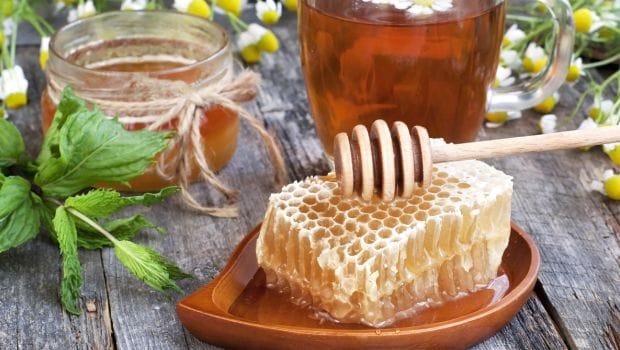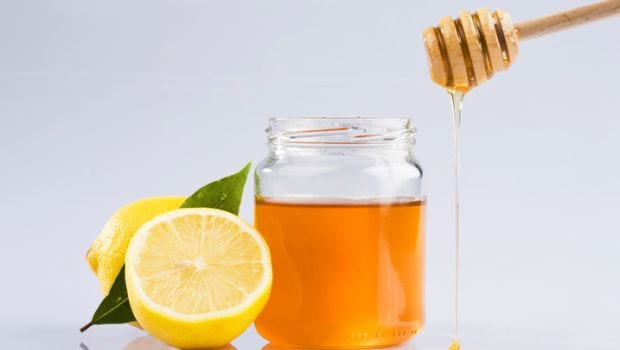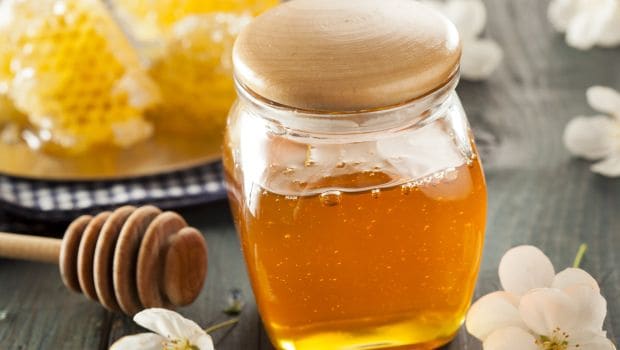The beautiful golden sweetener – honey is often regarded as a miracle liquid. Full of nutrients, active enzymes and beneficial natural compounds, honey is used in many home remedies to treat common ailments like cold, cough or sore throat. Regular consumption of honey is known to make you stronger from within by boosting your immunity and protecting you from infections and diseases. It is a healthy practice to start your day with a tablespoon of honey and warm water. This combination is known to improve digestion, boost your energy levels and remove toxins. A pot of honey can last you long. But, how long? Does honey ever spoil or does it last forever?Many modern archaeologists have discovered pots of honey, thousand years old but still preserved, amongst tomb artifacts and while excavating ancient sites. So, yes, honey doesn’t really spoil but it may harbour bacteria (botulism) if it is stored in a tin can which is why you will find that honey is often sold in a glass jar. Believe it or not, it is one of the few foods that can last you for many years and still be edible. Over time, your honey may crystallize (turn cloudy, solidify and become granular resembling white crystals), but crystallization of honey does not mean that it has gone bad. On the contrary, crystallization is a sign of pure honey. It is a natural process that may occur because honey is a highly saturated sugar solution. If this happens, just place the jar in warm water for few minutes and the honey will get back to its liquid form.(Also read: How to Check If Your Honey is Pure or Adulterated) Honey is full of nutrients, active enzymes and beneficial natural compounds. Photo Credit: Istock
Honey is full of nutrients, active enzymes and beneficial natural compounds. Photo Credit: Istock
Why Honey Never SpoilsSo, now you know that honey never spoils, but what makes it last forever unlike other foods? It is believed that processed honey (the ones that are available in supermarkets and have been industrially filtered) have an indefinite shelf life but raw honey which is procured directly from the beehive, is unfiltered and is consumed in its pure state, stays good for about one year. Since it hasn’t been subjected to industrial processing and may still contain some impurities, raw higher has a higher chance of contracting bacteria.Honey has many incredible properties and the very composition of honey gives it a long shelf life. Honey is a highly concentrated solution of two types of sugars – glucose and fructose. Since it only contains simple sugars and minerals, it is hygroscopic in nature. This means that does not contain much water and has a very low concentration of moisture. This dry or moisture-less environment makes it difficult for bacteria to thrive and even if they do attack honey, these organisms won’t be able to survive for long and therefore, they can’t spoil the honey.(Also read: Why Raw Honey is Better Than Regular Honey) The very composition of honey gives it a long shelf life. Photo Credit: Istock
The very composition of honey gives it a long shelf life. Photo Credit: Istock
Another reason why honey may last a lifetime is its level of acidity. Honey has a PH level between 3 and 4.5 which will kill any foreign bacteria or micro-organisms that invade honey. This is why honey is known to be an excellent anti-bacterial agent.There’s a bit of science involved too. The third reason that makes this sticky delight last forever is the presence of hydrogen peroxide. Honey is thick and contains hydrogen peroxide that prohibits bacterial growth and creates perfect barrier against bacteria that can cause spoilage. This is probably why honey has been used for medicinal purposes since ancient times.How to Store HoneyHoney can easily suck in moisture if it is left unsealed and therefore, it is important to close the lid tightly after every use. If you leave it out in a humid environment it will naturally spoil. Keep it away from sunlight and heat and store it at a cool room temperature.

Why Honey Never SpoilsSo, now you know that honey never spoils, but what makes it last forever unlike other foods? It is believed that processed honey (the ones that are available in supermarkets and have been industrially filtered) have an indefinite shelf life but raw honey which is procured directly from the beehive, is unfiltered and is consumed in its pure state, stays good for about one year. Since it hasn’t been subjected to industrial processing and may still contain some impurities, raw higher has a higher chance of contracting bacteria.Honey has many incredible properties and the very composition of honey gives it a long shelf life. Honey is a highly concentrated solution of two types of sugars – glucose and fructose. Since it only contains simple sugars and minerals, it is hygroscopic in nature. This means that does not contain much water and has a very low concentration of moisture. This dry or moisture-less environment makes it difficult for bacteria to thrive and even if they do attack honey, these organisms won’t be able to survive for long and therefore, they can’t spoil the honey.(Also read: Why Raw Honey is Better Than Regular Honey)

Another reason why honey may last a lifetime is its level of acidity. Honey has a PH level between 3 and 4.5 which will kill any foreign bacteria or micro-organisms that invade honey. This is why honey is known to be an excellent anti-bacterial agent.There’s a bit of science involved too. The third reason that makes this sticky delight last forever is the presence of hydrogen peroxide. Honey is thick and contains hydrogen peroxide that prohibits bacterial growth and creates perfect barrier against bacteria that can cause spoilage. This is probably why honey has been used for medicinal purposes since ancient times.How to Store HoneyHoney can easily suck in moisture if it is left unsealed and therefore, it is important to close the lid tightly after every use. If you leave it out in a humid environment it will naturally spoil. Keep it away from sunlight and heat and store it at a cool room temperature.
Advertisement








